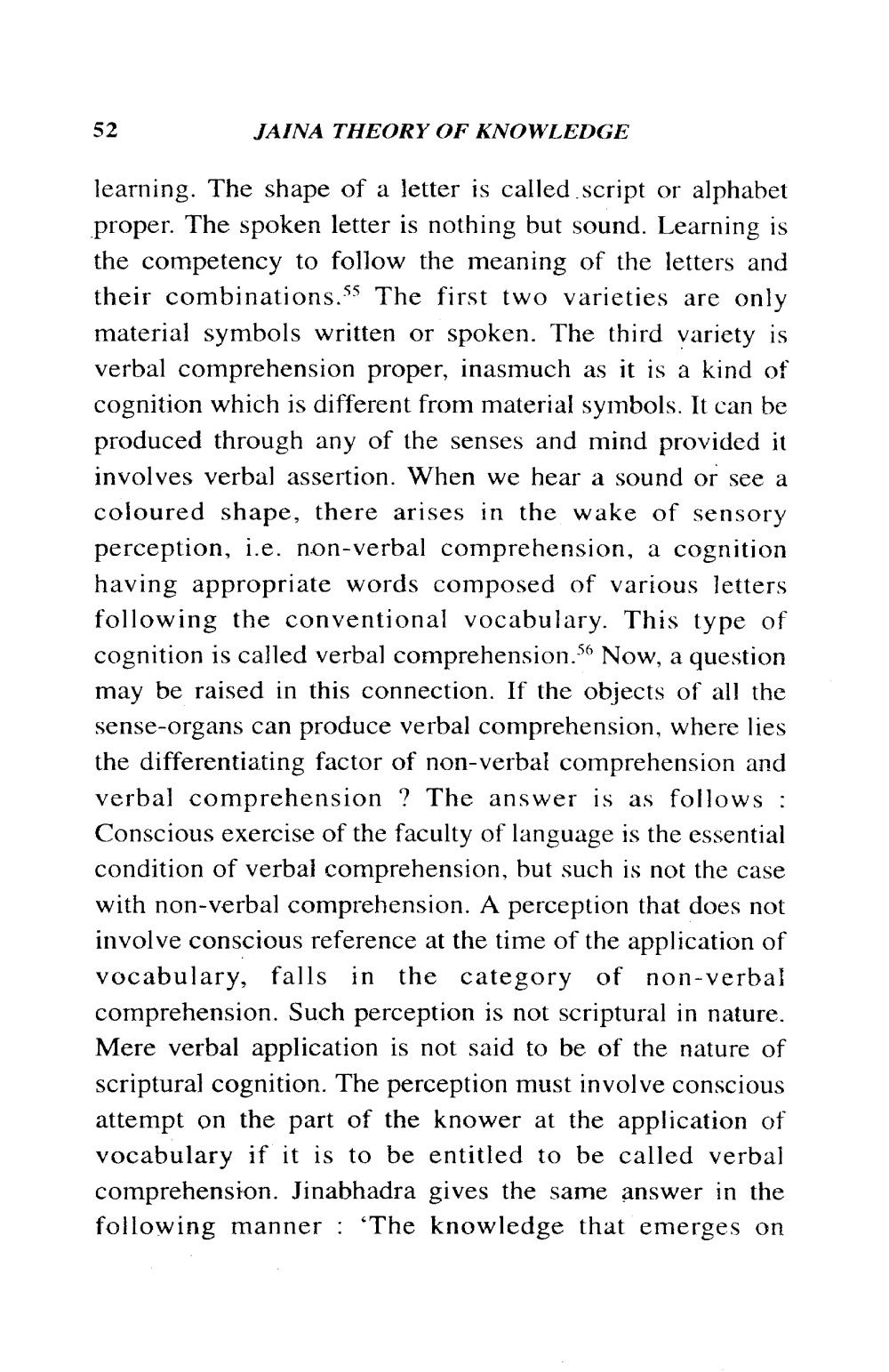________________
JAINA THEORY OF KNOWLEDGE
learning. The shape of a letter is called script or alphabet proper. The spoken letter is nothing but sound. Learning is the competency to follow the meaning of the letters and their combinations.55 The first two varieties are only material symbols written or spoken. The third variety is verbal comprehension proper, inasmuch as it is a kind of cognition which is different from material symbols. It can be produced through any of the senses and mind provided it involves verbal assertion. When we hear a sound or see a coloured shape, there arises in the wake of sensory perception, i.e. non-verbal comprehension, a cognition having appropriate words composed of various letters following the conventional vocabulary. This type of cognition is called verbal comprehension.56 Now, a question may be raised in this connection. If the objects of all the sense-organs can produce verbal comprehension, where lies the differentiating factor of non-verbal comprehension and verbal comprehension ? The answer is as follows: Conscious exercise of the faculty of language is the essential condition of verbal comprehension, but such is not the case with non-verbal comprehension. A perception that does not involve conscious reference at the time of the application of vocabulary, falls in the category of non-verbal comprehension. Such perception is not scriptural in nature. Mere verbal application is not said to be of the nature of scriptural cognition. The perception must involve conscious attempt on the part of the knower at the application of vocabulary if it is to be entitled to be called verbal comprehension. Jinabhadra gives the same answer in the following manner : ‘The knowledge that emerges on




